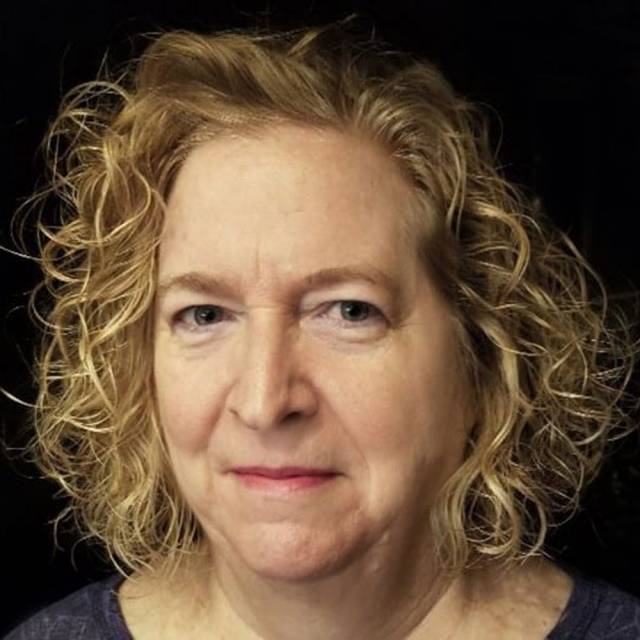Wendy Belcher, professor of comparative literature and African American studies, has been awarded two major grants, totaling over $600,000, from the National Endowment for the Humanities (NEH). Both three-year grants will support the Princeton Ethiopian, Eritrean and Egyptian Miracles of Mary digital humanities project (PEMM), a comprehensive resource for the miracle stories written about the Virgin Mary in Ethiopia, Eritrea and Egypt, and preserved in Gəˁəz (classical Ethiopic) between 1300 and the present.

Wendy Belcher
The NEH announcement on Aug. 17 included $28.4 million in grants for 239 humanities projects across the country. "The grants … demonstrate the resilience and breadth of our nation's humanities institutions and practitioners," said NEH's Acting Chairman Adam Wolfson. "From education programs that will enrich teaching in college and high school classrooms to multi-institutional research initiatives, these excellent projects will advance the teaching, preservation, and understanding of history and culture."
"There are eight centuries of criminally understudied African written texts and the PEMM project is a big step forward in bringing attention to those riches," said Belcher, a 2021-22 Old Dominion Research Professor in the Humanities Council. She will participate in the 15th Annual Humanities Colloquium, "Humanities and Mobility," to be held at 4:30 p.m. on Sept. 23.
The aim of the project is "to provide access to better information about this huge wealth of folklore," Belcher said. It offers students and scholars web and print access to hundreds of the stories, which among their many themes take up healing, reparative justice and personal ethics. By increasing access to early African texts in the U.S. and other English-speaking countries, the resource will help ensure that humanities scholarship and curriculums are founded on a more global canon.
Belcher hopes that the project will not only generate information for researchers, but also will be utilized by members of the Ethiopian community in the U.S. and around the world. One of the project's goals is to provide African-heritage students with the opportunity to study and work on their patrimony, and outreach to students in these communities is built into the project's plan. PEMM offers "a way of connecting to that heritage," Belcher said, and one that she hopes will inspire a new generation of humanists.
The Marian stories are contained in a compilation text called the "Täˀammərä Maryam (Miracles of [Saint] Mary)." At least 100,000 "Täˀammərä Maryam" manuscripts exist worldwide, each with varying numbers of stories and versions, and yet only a handful of the 800-plus stories have been cataloged or translated into English.
The NEH Scholarly and Scholarly Translations Grant of $297,256 will fund researchers with rare language skills to catalog stories in parchment manuscripts, translate them into English and write short introductions.
The NEH Digital Humanities Advancement Grant of $325,000 will fund a public-facing, open-access web application and data portal to share the stories, along with the images, translations and scholarship that surround them.
"We are excited that this important project on African culture and literary translation has received not one, but two, substantial grants from the National Endowment for the Humanities," said Kathleen Crown, executive director of the Humanities Council at Princeton University. "The Council has a long tradition of incubating research projects that go on to receive support at the national level. The NEH grants will allow PEMM to develop new directions in translation studies and have even greater global reach and impact."
The PEMM project is currently a Global Initiative of the Humanities Council, where the research collaboration is in its fourth year, supported since 2018-19 by a David A. Gardner '69 Magic Grant for Innovation, as well as by the Stewart Fund for Religion. The Center for Digital Humanities (CDH) provided crucial startup support in the form of a Dataset Curation and Public Humanities Grant, which provided guidance about best practices in working with data and data modeling, as well as a subsequent Research Partnership Grant. In addition, the Princeton Institute of International and Regional Studies and the Department of African American Studies provided substantial support in 2021. The University Committee on Research in the Humanities and Social Sciences funded the work of 12 Princeton undergraduates who wrote story summaries, provided keywords and completed translations of the stories.
"We are thrilled that the PEMM project is receiving well-deserved attention from the NEH," said Meredith Martin, associate professor of English and CDH director. "The CDH charter process is based on NEH grant applications for precisely this reason; we want our collaborators to feel that the NEH or Mellon Foundation is a logical next step for them. We look forward to cheering Professor Belcher on as her team expands the project in new directions."
"What Princeton enabled me to do is to develop this extraordinary team," Belcher said. Along with Belcher, the primary team members are project manager Evgeniia Lambrinaki, and Gəˁəz language and literature experts Mehari Worku, Dawit Muluneh and Jeremy Brown. The project will now add two team members: Jean Bauer, web development team lead, and Henoke Alemayehu, stack developer.
"I'm so grateful to have funding to keep the team together," Belcher said. "All of them have really unusual skills, and I'm delighted to be able to fund them for their brilliant work."






